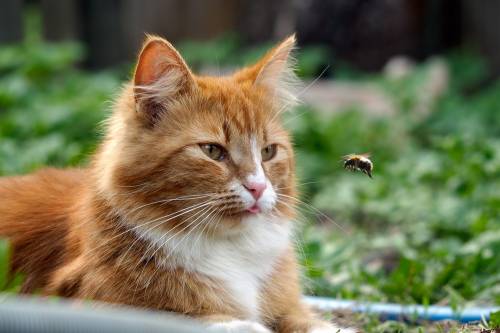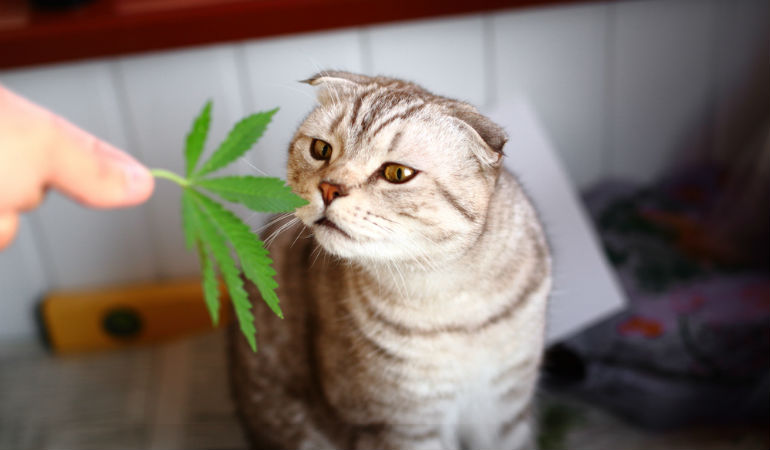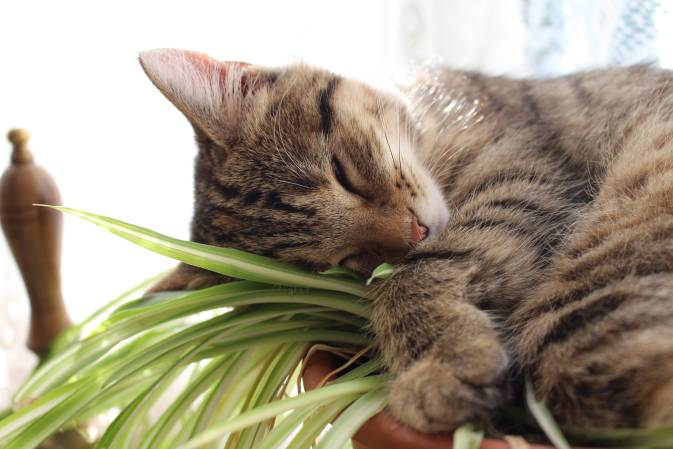Has your cat eaten some lime? Are you worried the lime will make your cat sick? If so, then you’ve come to the right place. We understand it can be scary when our fur babies eat something they shouldn’t have!
Connect with a verified veterinarian in minutes. Licensed vets are available 24/7 to answer your questions. No need to worry about your furry family member.
In this article, we’ll take a look at limes and whether or not they can make your cat sick. Let’s get started!
What is a Lime?
Lime is a type of citrus fruit that’s green and is shaped somewhat like a lemon, only more round. There are several types of limes, each of which tends to be sour. Limes are a great source of vitamin C, like other types of citrus fruits. Limes are often used in cooking, baking, desserts, and even drinks.
Limes contain even more than vitamin C! They’re also packed with the following nutrients:
- Vitamin C: 22% RDI
- Iron: 2% RDI
- Calcium: 2% RDI
- Vitamin B6: 2% RDI
- Thiamine: 2% RDI
- Potassium: 1% RDI
Limes also contain small amounts of folate, niacin, riboflavin, phosphorus, and magnesium. They’re a great source of antioxidants and work to improve immunity, promote healthy skin, and much more.
The fruit is healthy for humans; however, what happens if a cat eats lime? Will the lime make a cat sick?
Limes & Cats
Limes are toxic to cats. And it’s amazing that most cats tend to avoid citrus fruit. They don’t seem to like the flavor, smell, etc. However, occasionally a cat may be curious enough to try these sour fruits.
The fruit contains a substance called d-limonene, which has insecticidal properties and is toxic to felines. When cats eat lime, their livers are not able to metabolize the d-limonene. As a result, the cat may develop liver problems from the toxic substance. What’s more, a cat’s size makes them more prone to being poisoned by the lime. For this reason, a cat may be poisoned by just one bite.

Review symptoms, medications & behavior to keep your pets healthy with a Vet Online in just minutes.
Ask a Vet Live NowSymptoms of Lime Toxicity in Cats
You may notice these symptoms if your cat has eaten some lime:
- Low blood pressure
- Photosensitivity
- Vomiting
- Diarrhea
- Hypothermia
- Excessive salivation
- Depression
- Weakness
- Trembling
If you notice these symptoms in your cat, then call the vet immediately. This is a medical emergency.
Treatment of Lime Toxicity in Cats
At the vet’s, they will perform a complete physical exam on your cat. The vet may also order lab work to check for organ failure and more.
If your cat recently ate the lime, then the vet may try a procedure called gastric lavage. This is done while your cat is under general anesthesia. The procedure involves washing the lime from the stomach. The vet may also use activated charcoal.
Other treatments will depend on your cat’s specific symptoms. It’s possible your fur baby may need to be hospitalized for a few days to ensure she’s stable.
The good news is that cats who receive prompt medical care have a higher chance of making a complete recovery.
Connect with a verified veterinarian in minutes. Licensed vets are available 24/7 to answer your questions. No need to worry about your furry family member.

Julie
Julie is a graduate of the University of North Carolina, Wilmington, where she studied Animal science. Though contrary to the opinion of her parents she was meant to study pharmacy, but she was in love with animals especially cats. Julie currently works in an animal research institute (NGO) in California and loves spending quality time with her little cat. She has the passion for making research about animals, how they survive, their way of life among others and publishes it. Julie is also happily married with two kids.
Review symptoms, medications & behavior to keep your pets healthy with a Vet Online in just minutes.
Ask a Vet Live Now



